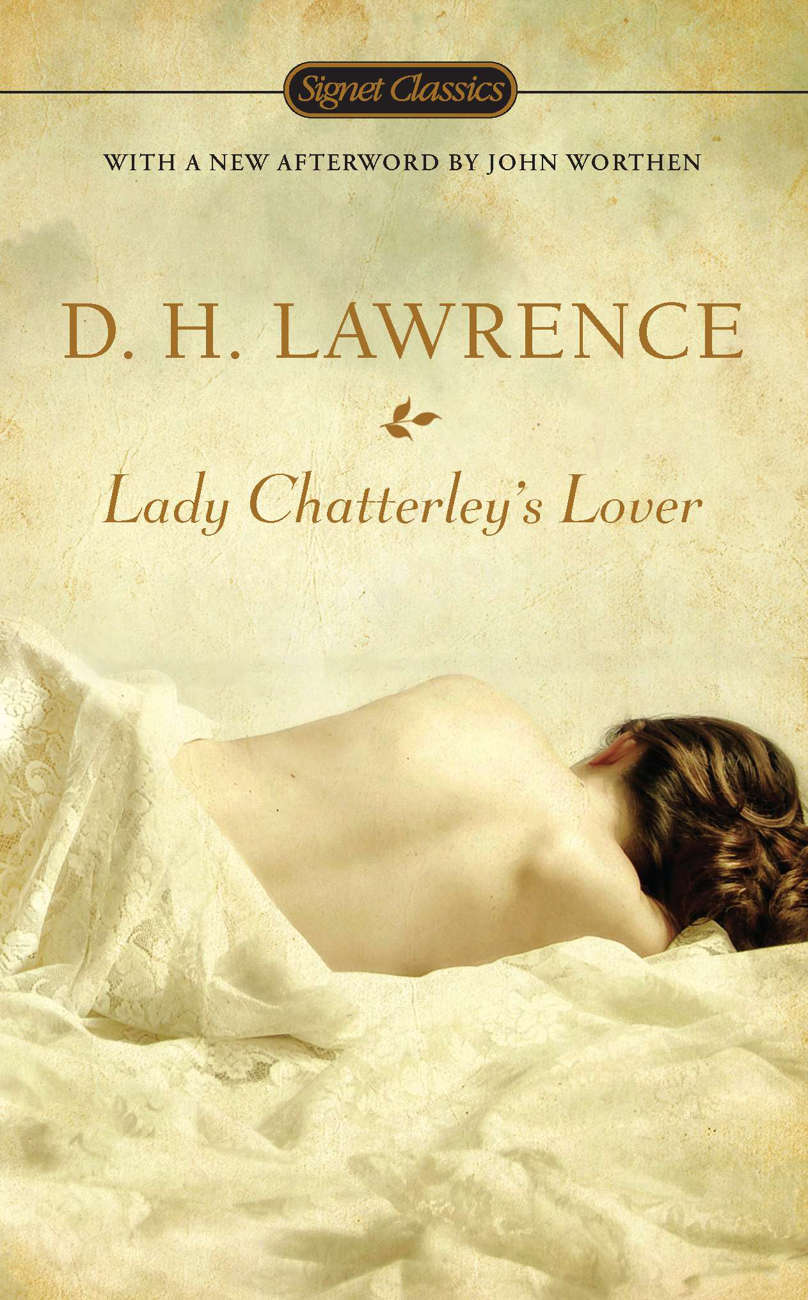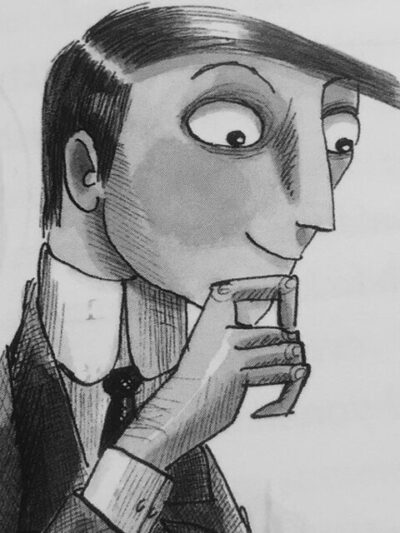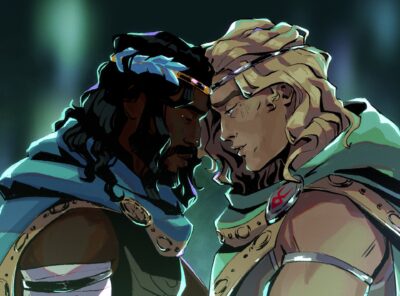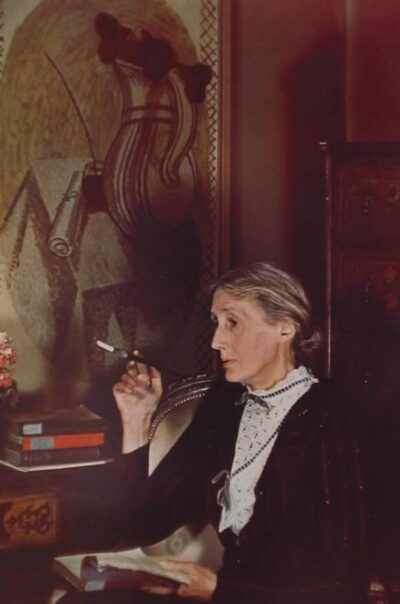“They lived freely among the students, they argued with the men over philosophical, sociological and artistic matters, they were just as good as the men themselves: only better, since they were women.”
D.H. Lawrence, Lady Chatterley’s Lover pp. 5
I have decided to switch gears and explore a different era of romance in what can be considered modern literature by reading Lady Chatterley’s Lover by D.H. Lawrence. This book has gained notoriety for its descriptive scenes of intimacy and adultery. Which yes, this book is the epitome of bodice rippers before bodice rippers were even a thing. However, sex is not the point. At least not completely. From the first five pages that I read, I could instantly see that this was not a book simply about the sexual desires or needs of the characters, but more so what that intimacy represented. Lawrence makes clear points and asks questions about life and the connection, or disconnection, between body and soul, and will consistently circle back to it throughout the chapters.
But this is all said through the perspective of someone who is only a small percentage through the book and only has a minimal understanding of the plot and characters in their entirety. So this could be a full circle moment where I reach the end of the book and the story and its world are not that deep and yes it is about sex and that’s it. But while I maintain some sense of mystery and lack of understanding of the entire book, I will delve into the story world of Constance Chatterley and her lovers.
I have approached this novel with notion that it was simply 400 pages of descriptive sex scenes. This however, was built on the controversy that has surrounded the novel since its release and from the view of others. The minute I was provided the recommendation from Professor Isbell, I instantly looked it up and a lot of the leading articles are about how scandalous it is and the controversy related to the novel.
Any notions I had were quickly proved wrong and I have to say I was pleasantly shocked. Which as a side note, I probably shouldn’t have been as shocked because novels or works that are so largely criticized are usually due to people jumping on a bandwagon of generalizations, plot points being blown out of proportion, or just the times. But I would like to point out that the novel doesn’t start out with just pointless sex or it doesn’t just use sex to move the story along. The depictions of sex and relationships are not just a factor, but play into the plot and the message, and allow for readers to understand the novel and the characters on a deeper level.
My first impressions or takes ways from the books is that it has a very political underlying theme. There is a lot of discussion of class, the economy, war, and political decisions. But also in a metaphorical way there seems to be a war of thoughts and concepts that are brought up through the characters and the depiction of settings. This could possibly be a reflection of the Lawrences own questions and inner turmoil. As it does seem like he was using the novel to work out his own frustrations, thoughts, and confusion in an attempt to find answers. As I have done more reading and more research on the book and D.H. Lawrence, there does seem to be a large connection between Lawrence and this book, mostly involving his opinions and experiences with class, politics, marriage, sex, and illness. This is an interesting concept to delve into and certainly add to the conversation of depictions of sex and even how writer writes their own experiences and live into their work and how this impacts reading experiences.
I also enjoyed how Lawrence uses the physical traits and environment to give context. Such as the description of the lack of pheasants leading up to the new game keeper and then the lack of trees that were cut down for the war connecting back to Mr. Chatterley’s war time. I enjoy reading books and being able to make these connections and drawn deeper meanings and connections with works.
Sex: A Topic Better Approached with Discretion
In my experience, certain topics, such as sex, can be difficult to traverse, especially in terms of academics and what is considered quality work. There is of course the line of what is actually appropriate to discuss. As well the line where it can become uncomfortable or go beyond a point where it is no longer considered academic or productive. I have seen this play out not just with the topic of sex, but with the romance genre as a whole. And there are “explanations” but not ones that are consistent or clear cut, which can make approaching discussions difficult. Even in approaching this assignment, I found myself second guessing my choice in literature and how I would be approaching it because the line of what is acceptable to delve into is generally unclear with what society has deemed sensitive topics, such as sex.
But while battling my own inner turmoil and indecisions, I started reading Lady Chatterley’s Lover and it cemented two things for me. The first being why I chose this book and that is for the fact that it is unfaltering in its approach of openly discussing and detailing everything that society refuses to, especially during the time it was written. The second thing it cemented was that if I changed my stance or book of choice simply because of the general conversation and standards, I was not only a par to the issue that I have an issue with, but I would equally being doing a disservice to the novel as well. And I refused to do that.
But it does beg the question of why does sex remain such a taboo topic in society, in college classrooms, and in literature? And why do these standards and biases still exist in the world of literature when it’s only against itself and disrupting the possibility for further understandings and developing of the field. This can be directly seen with the treatment of Lady Chatterley’s Lover in which multiple countries banned it for almost a century due to depictions of sex, especially that of woman embracing their sexuality, and of course the use of swear words.
The video shown below is something I came across when researching, not only Lady Chatterley’s Lover, but what is considered to be Smut romance. I think it’s interesting to see how the same conversations are constantly happening throughout the decades, but only shifting slightly in society perspective. This specific video is mentioned in the article Is Romance Smut? written by Laura K Curtis that speaks to a lot of aspects of both romance and smut that is relevant to the conversation I’m posing with Lady Chatterley’s Lover.
Even though I do disagree with some of the points that Curtis makes, I still agree that we need to think closer about classifications and what sex represents for the romance genre and other genres. More specifically why do we use terms such as Smut and obscenity to describes novel or open conversation regarding sex and its depictions. In certain cases it makes sense, and as such there is the point that everything has a time and place. But when trying create a positive conversation of how we see sexual die-citron or references in media, and specifically literature, using terms that have negative connotations does the opposite. I think with this the main point of conversation is how do we approach the already existing conversation and understanding the terms that we use and their actual meanings.
My Reading of Lady Chatterley’s Lover by D.H. Lawrence
I’m going to start by saying I am obsessed with this book. I am not yet finished with it and I probably won’t finish it until I get a stretch of time to do so because of the complexity and length of the novel. However, I was instantly entranced by Lawrence’s style and the way he narrates and develops the conflicts of his characters and the world they live in. Everything about how Lawerence crafts his world and more so crafts the process of events and feelings for his characters, is just brilliant and made me invested in this work and his other work.
The downfall to my experience is the common issue of transitioning my thinking and reading process. What I mean by this is that I have been reading a lot of modern literature that can be considered an easier read logistically, because the actual act of reading doesn’t need as much effort. However, when transitioning to reading a class novel, I forgot to considered how long it typically takes me to make that transition and get used to reading that form of literature that takes a little more brain power for me. Another aspect that posed an issue was finding a copy of the book. I could notified a copy of the book in store and the only option was to read it online, which was not great. I have since starting this assignment found a physical copy and I feel this has made it easier for me to read it and take notes on it. But I think this also poses a good question of how accessibility of titles that are considered not acceptable or easily digestible for society shuts down the possibility for further exploration of concepts and developing an understanding or an opinion of our own that is not dictated by others.
Attribution Statement
Lady Chatterley’s Lover, D.H. Lawrence. Afterword by John Worthen. Signet Classics edition. https://bookmarkludington.com/lady-chatterleys-lover/
Work Cited
Lawrence, D.H. Lady Chatterley’s Lover. Vintage Classics of Penguin Random House, 2024.




